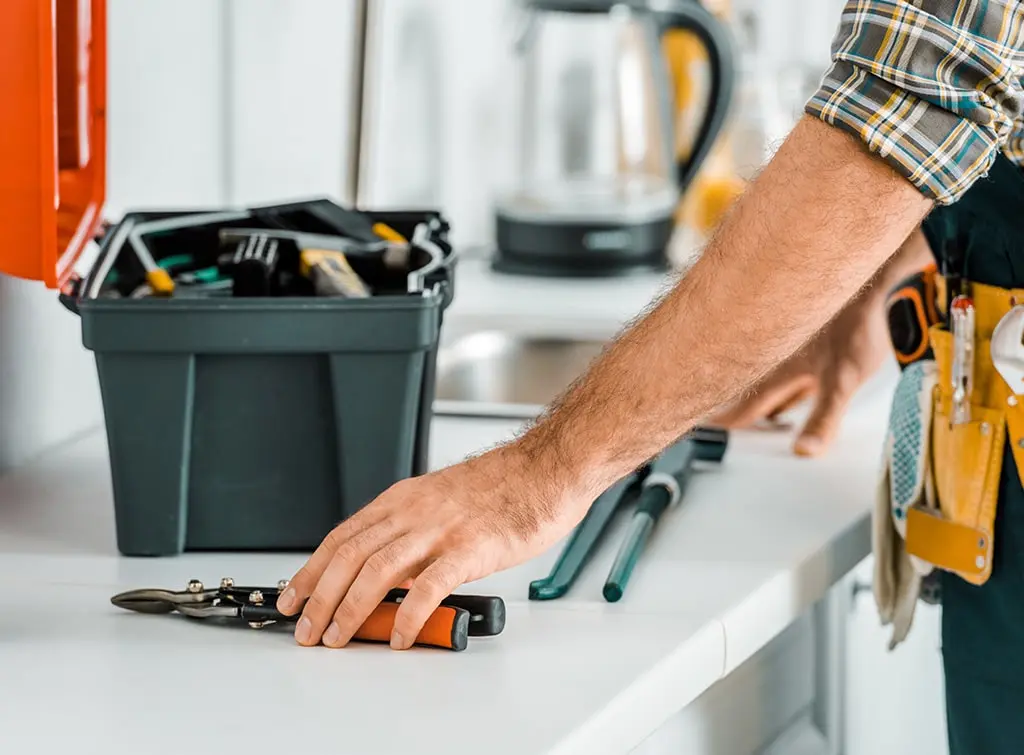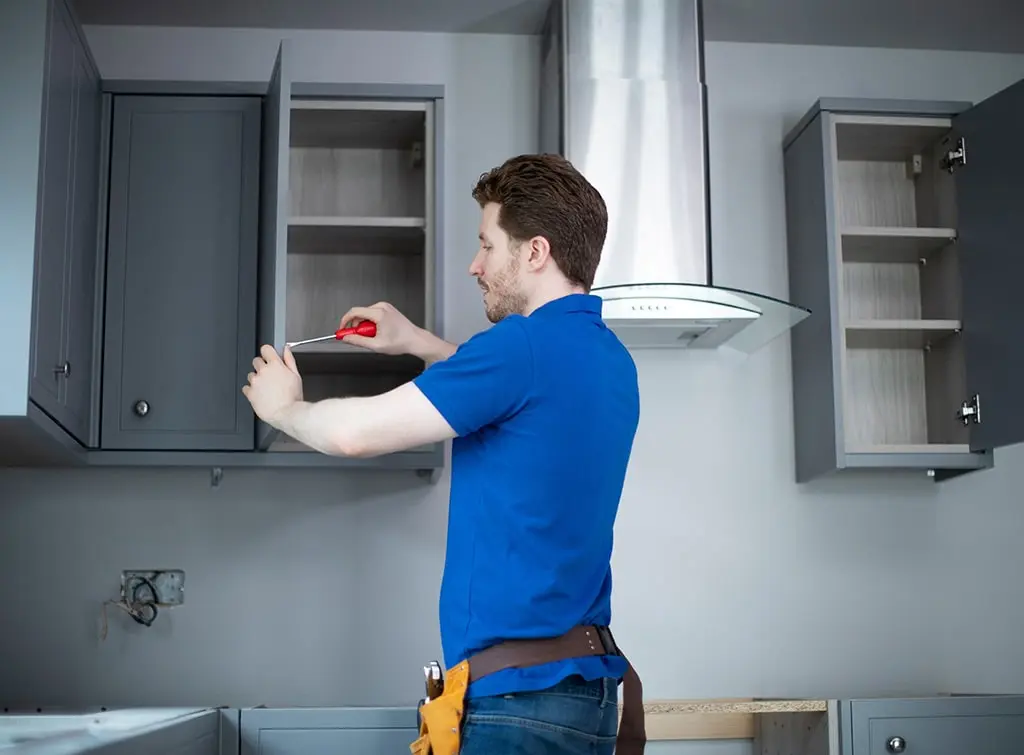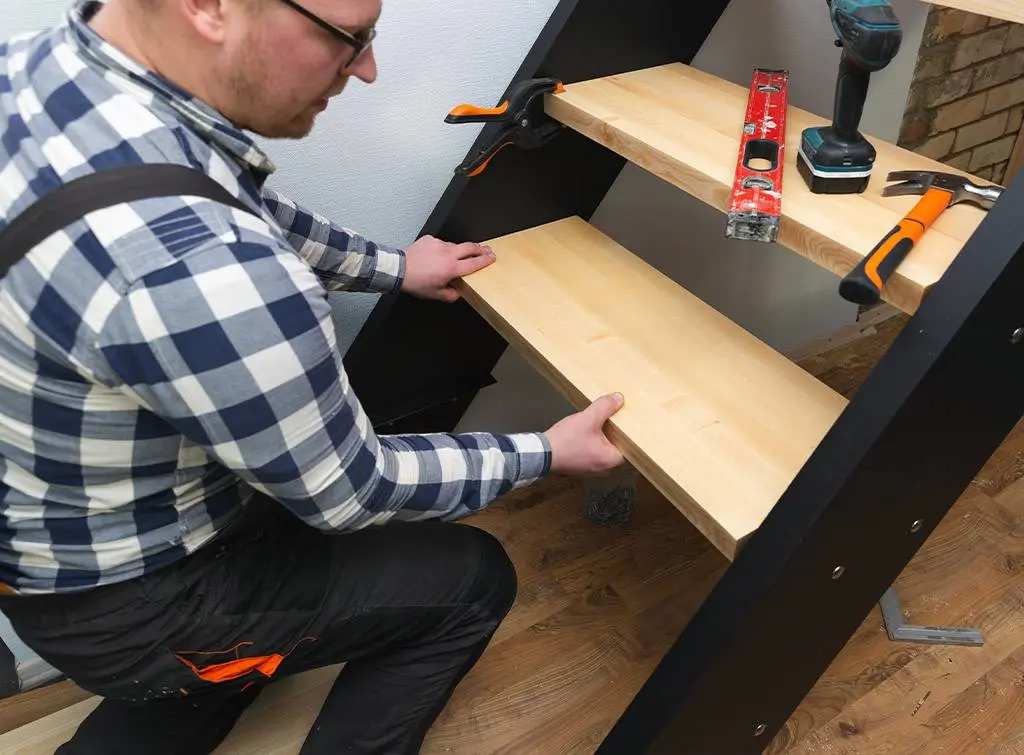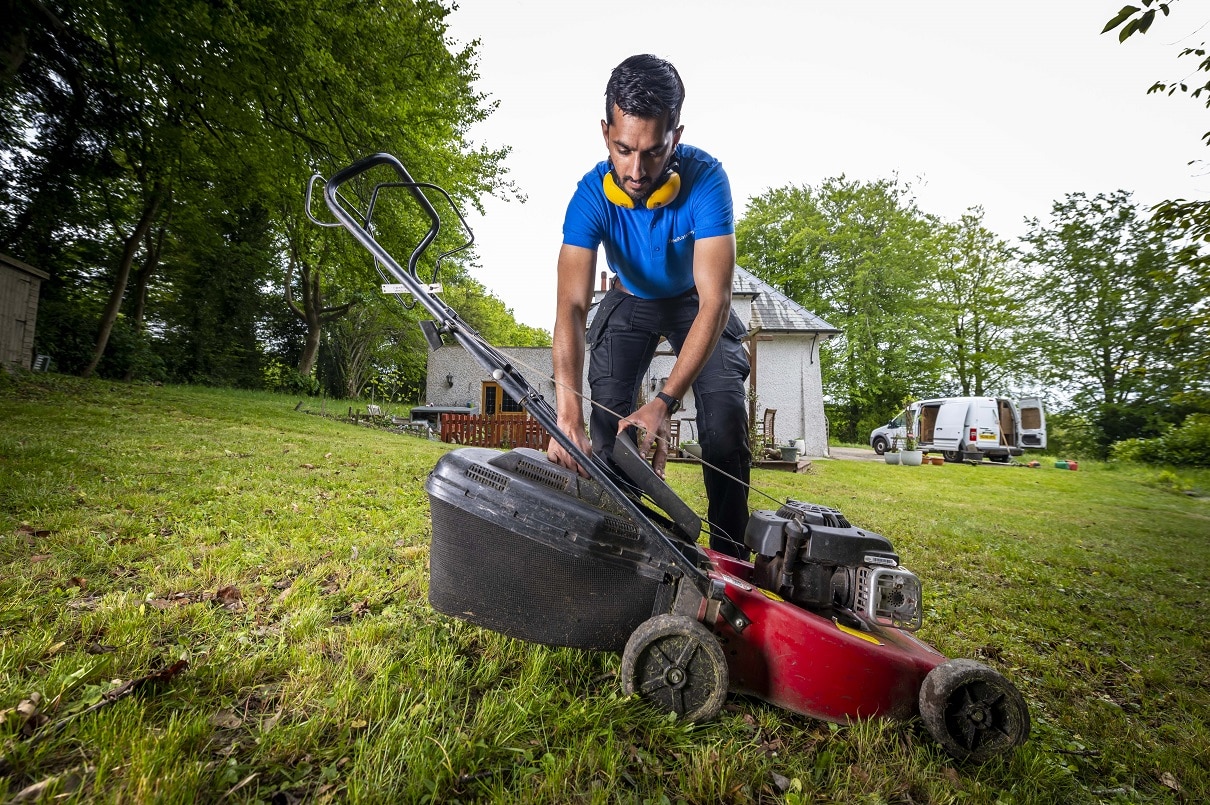Blog>Trade>Starting a Business>How to start a handyperson business
Last updated: 8 January 2025
How to start a handyperson business
If you’re skilled at lots of trades have you thought about starting a handyman business in the UK? Here’s how to make a handyman (or handyperson) business successful and take it to the next level.

If you’re a jack-of-all-trades, it’s likely you’ll be a highly skilled tradesperson who’s valued for your versatility. Homeowners usually have an endless list of improvements and repairs to do. They just don’t always have the skills!
Starting a handyman business in the UK could be a very lucrative step. As a self-employed handyman or handywoman, you’ll have total freedom. You’ll be able to choose your working hours, clients, and services.
This guide on how to start a handyperson business covers all the angles and tips:
Creating a business plan
Working out your marketing strategy
Financing your business
The legalities
Getting going!
Gaining more work
Increasing your revenue
Expanding your team
Developing your services
Setting goals

What to consider when starting a handyperson business
Before you start investing money in starting a small handyman business, there are a few things you’ll want to do.
1. Create a business plan for your handyman business
Your priority ought to be a business plan for a handyman business. It's how to make a handyman business successful.
You’ll probably have plenty of fantastic ideas in your head. A business plan sets them out on paper. That way, each step is clear and should be achievable.
Important steps in your business plan for a handyman business could include:
Your target market
Your goals and how to achieve them
A business plan helps you to:
Focus on what you’re best at doing
Outline the scope of services you offer
Stay organised
Keep motivated
Work efficiently and to a high standard
Be more productive
Make better-informed business decisions
Need some help with a handyman business plan? Grab this free template to make your life easier!
2. Invest in training and qualifications
It’s so important to have some qualifications to show potential customers you’ve acquired the right skills for the job. Plus, there are solid financial benefits to upskilling yourself.
It may be that you’ve decided to start out as a handyperson after repairing and maintaining your own home. Gaining formal training will help you solidify your practical repair skills. It can help you tackle professional property maintenance projects.
Alternatively, as handyperson work is varied. When starting a handyman business you could look at sector-specific qualifications. These could include:
Level 2 Diploma in Bricklaying
Level 2 and 3 Diploma in Fencing (the non-jousting kind) and Construction
Level 2 or 3 Diploma in Carpentry and Joinery
Level 2 or 3 Diploma in Site Carpentry
You could consider completing a multi-trade City & Guilds course to make it clear you’re qualified for this line of work. Any of these credentials will make you appear more credible and encourage people to hire your services.
Along with formal qualifications, membership of a body such as the Association of Certified Handyman Professionals (ACHP) may also be beneficial. Membership relies on you passing an assessment. But it will demonstrate competence and a willingness to apply best practices.
3. Make sure you have the right skills and attributes
Knowing how to start a handyman business is a question of having the right skills. As a handyman or woman, you’ll face a number of challenges while on the job.
You’ll need strong problem-solving skills and a good dose of common sense. You’ll also need other skills to excel in running your own business. These include:
Practical thinking
Problem-solving
Physical fitness
Attention to detail
Leadership
Customer service
The ability to work independently
Time management
Health and safety knowledge
Basic maths
The strength to resist sucking air through your teeth when pricing up jobs
Checkatrade members can save ££££s on business essentials
Get discounts on fuel, insurance, tools, equipment, and materials!

Starting a handyman business – step by step
Now for the juicy bit of this guide – the steps to complete to get your business up and running.
1. Register your business
For legal reasons, you’ll first need to register your business. You’ll need to decide whether you’re a sole trader or a limited company.
Setting up as a sole trader
As a sole trader, you’ll need to register your business with HMRC when you set it up. The primary formal paperwork is your annual tax return.
You'll need to keep accurate business accounts. And you’ll be held personally responsible for your business losses and debts.
Setting up a limited company
On the other hand, a limited company structure provides better financial protection. Limited companies need to register with Companies House.
The downside is that limited companies have more paperwork and responsibilities, so you need to decide what’s best for you.
These aren’t the only pros and cons to weigh up when making your decision. Do your research and choose a structure that suits you best.
2. Get insurance
As a tradesperson, there can be moments when an accident happens or a customer is left dissatisfied. This is where insurance comes in. It will protect you from fines and compensation fees in the event of a legal dispute.
Here are the main types to consider when starting a handyperson business in the UK:
Employers’ liability insurance (if you employ anyone else as part of your business)
Legal expenses insurance
Tools in transit cover
Personal accident insurance
There are tradespeople out there getting covered for less.
Tradespeople who join Checkatrade get discounts with Checkatrade partners. That includes 20% off PLI - a must for all our members!
Checkatrade members can save ££££s on business essentials
Get discounts on fuel, insurance, tools, equipment, and materials!
3. Get your head around the finances
Your business will have many transactions coming in and out. It’s important to keep track of all the income and expenditures to stay profitable.
Using accounting software is a great way to keep on top of your business admin. As a Checkatrade member, you can save up to 75% off QuickBooks business software.
At the start, you may be operating at a loss due to the upfront costs of:
Equipment
Insurance
Supplies
If you’re struggling to cover these expenses, if your budgeting allows, you could take out a business loan. Just be mindful of the interest rates and repayments.
Another major part of bookkeeping is filing taxes. You’ll have to keep these well documented on a regular basis along with your cashflow. If you’re unsure about taxes or paperwork, you could hire an accountant to help.
Simple tips for how to manage cash flow
Understanding cash flow management Whether you’re an experienced business owner or just starting out, you can't ignore cash flow management. A small trade business needs to manage cash flow because every penny counts. Larger national and regional businesses face bigger movements of cash. That can

4. Invest in handyperson tools and equipment
Investing in a full inventory of tools is key to making sure you’re ready to tackle any job. This will make your job much easier. You’ll also impress customers with your speed, efficiency and professional finish.
As the expert, you’ll know exactly what tools you’ll need. But just in case, here’s a list of tools to get started with:
Vehicle – van or car – and a valid driving licence, of course!
Hammers
Wrenches
Screwdrivers
Utility knife
Allen keys
Pliers
Sander
Planer
Chisels
Tape measure
Saws
Electric drill
Step ladder
Spirit level
Caulking gun
Stud finder
Make sure your equipment is the best quality you can afford. Remember the saying “buy cheap … buy twice”.
Checkatrade members are saving money on business essentials including tools, insurance and fuel.
Checkatrade members can save ££££s on business essentials
Get discounts on fuel, insurance, tools, equipment, and materials!

5. Promoting your new handyperson business
A major part of starting a handyman or woman business in the UK is knowing how to reach potential customers.
While word-of-mouth recommendations are ideal, there are many marketing strategies to explore.
Just a few avenues you could pursue when just starting out include:
Distributing leaflets and flyers door-to-door
Put up posters in busy areas
Get vehicle graphics with your business name and contact details
Advertising in a local newspaper or magazine
Checkatrade members have the opportunity to feature in our leading trade directory, which is delivered to homeowners around the country.
6. Marketing your handyman business online
There are many straightforward ways of marketing your handyperson business. As we all know, lots of marketing nowadays is done online.
Many digital marketing methods are available to establish an online presence for your new business. They can really help to engage with clients digitally and target new audiences. Methods include:
Building a website
Investing in SEO
Building a social media presence
Paid advertising
The best part about organic social media is that it’ll only really cost you your time. It provides a solution to tell people about your handyperson services and stories.
Checkatrade members can save ££££s on business essentials
Get discounts on fuel, insurance, tools, equipment, and materials!

Learn from other business owners and 'Become the Boss’
Save yourself time and hassle getting your business started with the help of our Become the Boss series.
https://www.youtube.com/watch?v=UoRV0Fsrgnk
Owning your business is a way to earn more money. Not considered going it alone? Why not sign up today.
You’ll receive:
A series of 8 emails
Actionable tips and advice
A free business strategy call
And by the end of it all, you could be the founder of your new business. To get trade business insider secrets sent to your pocket, enter your email address:
Key considerations for starting a handyman business
There are some other important considerations to make when planning your business growth.
Funding – will you need to source additional funding to facilitate your growth plans?
Business structure – is it still suitable to operate as a sole trader as your business expands? Speak with your accountant about becoming a limited company
Company finances – an accountant can help you to stay tax efficient and compliant, and even help to source additional funding as you grow
Business processes – review your processes to make sure they’re scalable. Consider what technology can help to make your business more efficient
For more tips to help grow your trade business, check out this article.
How to grow your handyperson business
If you're ready to take your business to the next level, you're in the right place. We've put together our top ideas for how to grow your handyman business. We'll also look at the steps to achieve manageable business growth. So, let's get started... What does business growth look like for you

Start your handyperson business with Checkatrade
There’s a lot to think about when running your own business. As a Checkatrade member, you can get your business off to the best start.
You’ll need to pass our 12 checks to become one of our members. As standard, we only list tradespeople who meet the high standards homeowners expect.
With a strict approval process to ensure we only list the best tradespeople. Here are just a few of the reasons to become a Checkatrade member:
1. Get more leads
Last year, there were over 22 million job searches for tradespeople on the Checkatrade website.* That includesover 566,000 searches across the UK just for handyman work.* Seems like a big level of interest to benefit from.
2. Win more work
Homeowners trust our renowned ‘tick’ of approval, helping you to build your reputation and win more business.
3. Save money
With exclusive access to trade discounts, Checkatrade members save money on business essentials, helping to keep their profit margins generous.
FAQs
Is a handyperson business scalable?
Absolutely. You can start small and grow. Or stay small. That's the beauty of a handyperson trade business - you're the boss. There's always demand out there for home maintenance and improvement.
How much does it cost to start a handyman or woman business?
Starting a handyperson business will usually cost between £1,500 – £3,500. The up-front costs vary because it depends on how much you’re spending on equipment, supplies, marketing, insurance, and so on.
One way to keep costs down is by hiring equipment rather than buying it. You can buy it outright once your revenue increases.
Here’s a handy tip! Being a Checkatrade member means you can actually save on your tools, insurance and fuel. Selco, Tradepoint and Wickes are some of the partners you can save with.
How much can I earn running handyperson business?
The average handyperson salary in the UK is around £24,960.00 per year, but you could earn even more than this. Growing your client base and finding a steady stream of work will increase your revenue.
Who can I learn from to grow my business when I launch it?
Homeserve founder Richard Harpin has a free book available called Accelerate!, which is aimed at trade businesses. It’s packed with all his experience and knowledge so that you can get your business going on the right path.
Checkatrade members can save ££££s on business essentials
Get discounts on fuel, insurance, tools, equipment, and materials!
* Internal search data from users of the Checkatrade.com website in 2024




